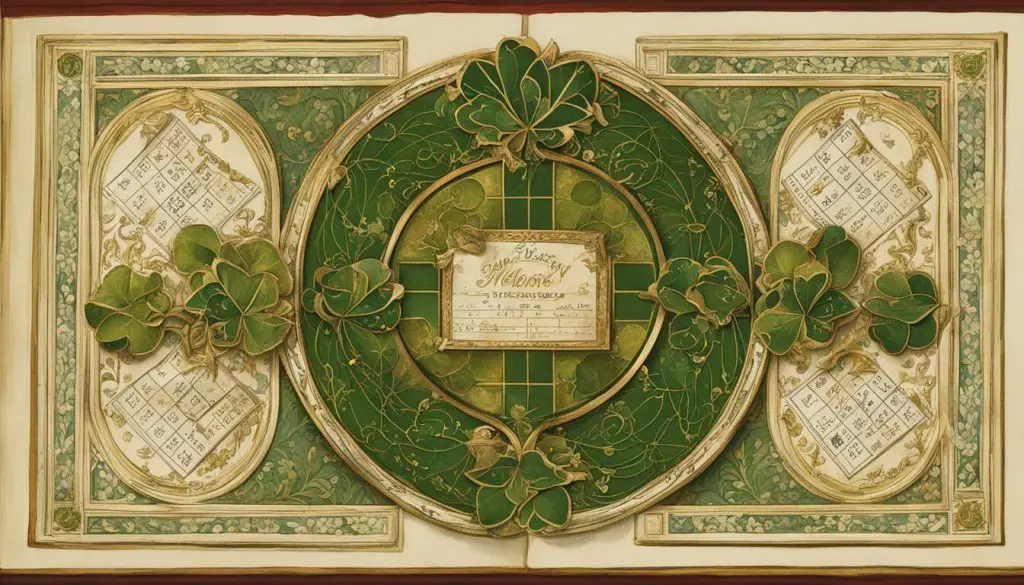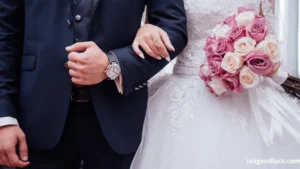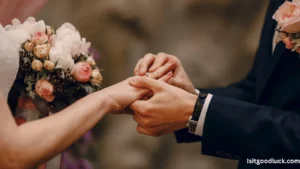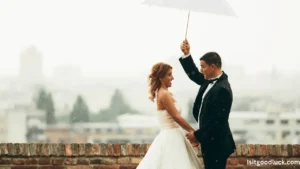Every four years, we add an extra day to the month of February, known as Leap Day. This tradition stems from the need to align our calendars with the Earth’s movement around the Sun. But along with this leap year tradition come various myths and superstitions. In this article, we will explore the question of whether it is good luck to get married on a leap year. We will delve into wedding superstitions and leap year wedding beliefs to unveil the truth behind this intriguing tradition.
Contents
- 1 The Superstitions Surrounding Leap Year Birthdays
- 2 Leap Day Proposals: Tradition or Myth?
- 3 Lucky or Unlucky: The Superstitions Surrounding Leap Year Marriages
- 4 Leap Year and Mortality: Fact or Fiction?
- 5 The Science Behind Leap Years
- 6 Conclusion
- 7 FAQ
- 7.1 Is it good luck to get married on a leap year?
- 7.2 What are some superstitions surrounding leap year weddings?
- 7.3 Do leap years bring an increase in mortality rates?
- 7.4 How often do leap years occur?
- 7.5 What is the scientific concept behind leap years?
- 7.6 Are people born on February 29 lucky or unlucky?
- 7.7 Can a woman propose to a man on February 29?
- 8 Source Links
Key Takeaways:
- Leap years add an extra day to the month of February every four years.
- Leap year weddings are surrounded by myths and superstitions.
- Some believe getting married on a leap year brings good luck, while others consider it unlucky.
- Leap year birthdays and proposals also have their own set of superstitions and traditions.
- Ultimately, the decision to get married on a leap year should be based on personal beliefs and preferences.
The Superstitions Surrounding Leap Year Birthdays
One of the most interesting aspects of leap year superstitions is the belief that being born on February 29 is either extremely lucky or extremely unlucky. In Scotland, it was believed that those born on this day would have a life filled with suffering and pain. However, others see it as a stroke of luck, considering that the chances of being born on a leap day are rare – only once every four years. Astrologers even claim that those born under the zodiac sign Pisces, which covers the leap day, possess special talents and good looks. Despite these conflicting beliefs, leap year birthdays continue to fascinate people and are considered both unusual and fortunate.
To explore this further, let’s take a look at some leap year wedding customs, omens, and myths:
| Leap Year Wedding Customs | Leap Year Wedding Omens | Leap Year Wedding Myths |
|---|---|---|
| Wearing an article of blue clothing on your wedding day brings good luck. | If the bride stumbles or falls during the ceremony, it is believed to be a sign of bad luck. | The superstition that getting married on a leap year will result in a short marriage or an unhappy union. |
| Including a leap year poem in the wedding program is said to bring blessings and favor from the gods. | If a bird or butterfly is spotted during the wedding ceremony, it is believed to bring good fortune. | The belief that leap year weddings are cursed and will bring misfortune to the couple. |
| Having an extra ceremony dress or suit as a backup is considered a precaution against any potential bad luck. | If it rains on the wedding day, it is seen as a sign of cleansing and good luck for the marriage. | Some believe that getting married on a leap year will result in a leap year baby, which is seen as unlucky or difficult. |
As with all superstitions, it’s important to remember that they are merely beliefs and not guarantees of what will happen. Leap year birthdays and weddings are a unique and fascinating aspect of our calendar, and whether you embrace or disregard the associated customs and omens, they add an element of intrigue to these special occasions.
Leap Day Proposals: Tradition or Myth?
One of the most well-known traditions associated with leap years is the idea that on February 29th, a woman can propose to a man, and he cannot refuse. This custom, popularized in the movie “Leap Year,” has its roots in Scotland, where Queen Margaret is said to have imposed fines on men who rejected a woman’s proposal. Today, women have the freedom to propose anytime, regardless of leap years, but the concept of a leap day proposal still holds a certain charm.
Leap year weddings are often considered unique and special, symbolizing a reversal of traditional gender roles and a celebration of love and equality. While it may be seen as an unconventional way to start a marriage, the significance of a leap year wedding lies in breaking societal norms and embracing the power of love. The traditions associated with getting married on a leap year offer couples an opportunity to create a memorable and meaningful wedding experience.
“Leap day proposals and weddings challenge traditional gender roles and celebrate love and equality.”
The significance of leap year weddings extends beyond the custom of a leap day proposal. It serves as a reminder to embrace change, take risks, and seize moments of opportunity. By defying conventional expectations, leap year weddings can inspire couples to forge their own path and create a relationship that is truly unique to them. Whether it is a traditional ceremony or an unconventional celebration, leap year weddings hold a special place in the hearts of those who choose this extraordinary date to begin their journey of marriage.
Lucky or Unlucky: The Superstitions Surrounding Leap Year Marriages
Leap year weddings have long been a subject of fascination and debate, with various superstitions surrounding the luck or misfortune they may bring. While some view getting married on leap day as a lucky and charming choice, others believe it could bring bad luck to the union. Let’s take a closer look at the leap year wedding folklore and delve into these intriguing beliefs.
Superstitions and Beliefs
In Greece, there is a prevailing superstition that it is best to avoid getting married during a leap year. It is believed that couples who tie the knot during this time may face a variety of challenges and difficulties throughout their married life. Additionally, there is a belief that divorced couples who separate during a leap year will never find happiness again.
However, it is important to remember that marriage and divorce are personal choices, and they should not be influenced solely by superstitions. Each individual’s happiness and compatibility are determined by a multitude of factors, rather than the timing of their union.
Personal Choices and Superstitions
It is essential to approach leap year wedding superstitions with a level-headed perspective. While traditions and beliefs can add meaning to our lives, they should not dictate our choices or dampen our joy. Ultimately, deciding to get married on leap day should be based on personal values, desires, and the readiness of the couple to embark on their journey together.
When planning your leap year wedding, focus on celebrating your love and creating lasting memories rather than being swayed by superstitions. Remember that the success of a marriage is determined by the love, commitment, and compatibility of the couple, not by external factors or folklore.
A Celebration of Love
Leap year weddings can be a unique and memorable way to celebrate love. Regardless of the superstitions surrounding the date, the most important aspect of any wedding is the love and commitment shared between the couple. Embrace the beauty and charm of a leap year wedding, and create a celebration that reflects your unique love story.
| Superstition | Belief |
|---|---|
| Getting married on a leap year | Brings bad luck |
| Divorce during a leap year | Will lead to eternal unhappiness |
Leap Year and Mortality: Fact or Fiction?
One of the enduring superstitions surrounding leap years is the belief that they bring an increase in mortality rates. However, there is no factual evidence to support this claim. While some people genuinely fear a spike in deaths during leap years, the notion of increased mortality is more likely a coincidence than a causation. It is important to note that death is inevitable and not influenced by the calendar year.
Instead of dwelling on this superstition, it is more productive to focus on celebrating life and creating happy memories during leap year weddings. Leap year weddings offer a unique opportunity to symbolize love and unity, regardless of any lingering beliefs about mortality. By embracing the joyous celebration of love and commitment, you can create lasting memories that will defy any superstitions.
Remember, a leap year wedding is a time to cherish each other and your shared journey, rather than fixating on unfounded superstitions. Embrace the love and happiness that come with this special occasion, and let it be a testament to the strength of your relationship.
The Science Behind Leap Years
To fully understand the superstitions surrounding leap years and weddings, it is important to grasp the scientific concept behind leap years. Our planet takes approximately 365.24 days to complete one orbit around the Sun. To account for this fractional discrepancy, leap years are introduced every four years. This adjustment ensures that our calendars remain synchronized with the Earth’s revolution. While leap years may have sparked traditional beliefs and superstitions, it is essential to remember that they are primarily a mathematical and scientific phenomenon.
So, as you embark on your leap year wedding journey, take comfort in knowing that the concept of a leap year is rooted in science, and any superstitions surrounding it are merely products of human imagination. Let go of any unfounded fears and embrace the joy and excitement that come with planning a leap year wedding. After all, love knows no boundaries, not even those imposed by the calendar.
The Science Behind Leap Years
To fully understand the superstitions surrounding leap years and weddings, it is important to grasp the scientific concept behind leap years. Our planet takes approximately 365.24 days to complete one orbit around the Sun. To account for this fractional discrepancy, leap years are introduced every four years. This adjustment ensures that our calendars remain synchronized with the Earth’s revolution. While leap years may have sparked traditional beliefs and superstitions, it is essential to remember that they are primarily a mathematical and scientific phenomenon.
Leap years are a result of the Gregorian calendar system, which was introduced by Pope Gregory XIII in 1582. This system accounted for the fact that a solar year is approximately 365.24 days long. By adding an extra day to the calendar every four years, we are able to align our calendars with the Earth’s movement around the Sun.
“Leap years are a testament to human ingenuity and our desire to make sense of the world around us. By incorporating the concept of leap years into our calendars, we have created a system that accurately reflects the Earth’s rotation and ensures that our days, months, and years align.”
So, while leap years may have acquired various superstitions and wedding beliefs over time, it is important to remember that at their core, they are a scientific phenomenon designed to keep our calendars in sync with the Earth’s revolution. So whether you believe in the luck or symbolism of a leap year wedding or not, there is no denying the fascinating science that underlies this unique calendar tradition.

| Leap Years | Non-Leap Years | |
|---|---|---|
| Number of Days | 366 | 365 |
| Extra Day | February 29th | N/A |
| Occurrence | Every 4 years | Not applicable |
The Science of Leap Years
Leap years are a testament to human ingenuity and our desire to make sense of the world around us. By incorporating the concept of leap years into our calendars, we have created a system that accurately reflects the Earth’s rotation and ensures that our days, months, and years align. It is this scientific foundation that provides the basis for the leap year wedding beliefs and wedding superstitions that have developed over time.
- Incorporate the concept of leap years into our calendars: By adding an extra day to the calendar every four years, we account for the fractional discrepancy between the solar year and the calendar year.
- Align our calendars with the Earth’s movement around the Sun: Leap years ensure that our calendars remain synchronized with the Earth’s revolution, allowing us to accurately track the passage of time.
- Reflect the Earth’s rotation: The introduction of leap years into our calendars reflects our understanding of the Earth’s rotation and the need to adjust our timekeeping systems accordingly.
Leap years may be steeped in tradition and folklore, but it is important to recognize that they are rooted in scientific principles. While the debate over the significance of leap year weddings and the beliefs associated with them continues, the science behind leap years remains a fascinating aspect of our calendar system.
Conclusion
In conclusion, leap year weddings have their own unique customs and traditions that may bring luck or superstition. Whether you choose to follow these leap year wedding customs is entirely up to you. Some couples embrace the charm and rarity of getting married on February 29th, while others may view it cautiously. Ultimately, the decision to have a leap year wedding should be based on your personal beliefs, values, and preferences.
Leap year marriages can be a memorable and joyous celebration of love, regardless of the superstitions surrounding them. Whether you believe in the luck associated with leap year weddings or not, what truly matters is the love and commitment between you and your partner. By focusing on the meaning of your marriage and the joyous moments shared on this special day, you can create a beautiful and unforgettable leap year wedding.
So, whether you choose to embrace the leap year wedding customs or not, remember that your love and happiness should always take precedence over superstitions. Enjoy every moment of your leap year wedding and create memories that will last a lifetime. Leap year or not, your marriage can be filled with luck, love, and happiness.
FAQ
Is it good luck to get married on a leap year?
Whether it is considered good luck or not to get married on a leap year is subjective and depends on personal beliefs and preferences.
What are some superstitions surrounding leap year weddings?
Some superstitions include the belief that it is best to avoid getting married during a leap year in Greece, and the notion that divorced couples who separate during a leap year will never find happiness again.
Do leap years bring an increase in mortality rates?
There is no factual evidence to support the claim that leap years bring an increase in mortality rates. Death is inevitable and not influenced by the calendar year.
How often do leap years occur?
Leap years occur every four years to account for the fractional discrepancy between the Earth’s orbit around the Sun and a 365-day calendar year.
What is the scientific concept behind leap years?
Leap years are introduced every four years to ensure that our calendars remain synchronized with the Earth’s revolution around the Sun, as our planet takes approximately 365.24 days to complete one orbit.
Are people born on February 29 lucky or unlucky?
There are conflicting beliefs regarding this. Some see it as extremely lucky, considering the rarity of being born on a leap day, while others believe it brings a life filled with suffering and pain. Ultimately, it is a matter of personal interpretation.
Can a woman propose to a man on February 29?
Traditionally, a woman can propose to a man on February 29, and he cannot refuse. This custom has its roots in Scotland, but today, women have the freedom to propose anytime, regardless of leap years.






